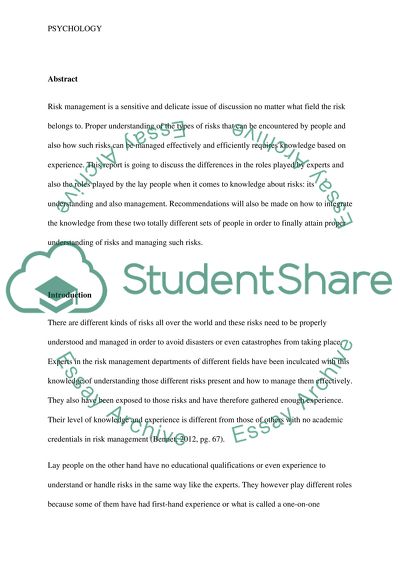Cite this document
(“The role of expert and lay knowledge in understanding and managing Essay”, n.d.)
The role of expert and lay knowledge in understanding and managing Essay. Retrieved from https://studentshare.org/psychology/1454387-the-role-of-expert-and-lay-knowledge-in
The role of expert and lay knowledge in understanding and managing Essay. Retrieved from https://studentshare.org/psychology/1454387-the-role-of-expert-and-lay-knowledge-in
(The Role of Expert and Lay Knowledge in Understanding and Managing Essay)
The Role of Expert and Lay Knowledge in Understanding and Managing Essay. https://studentshare.org/psychology/1454387-the-role-of-expert-and-lay-knowledge-in.
The Role of Expert and Lay Knowledge in Understanding and Managing Essay. https://studentshare.org/psychology/1454387-the-role-of-expert-and-lay-knowledge-in.
“The Role of Expert and Lay Knowledge in Understanding and Managing Essay”, n.d. https://studentshare.org/psychology/1454387-the-role-of-expert-and-lay-knowledge-in.


